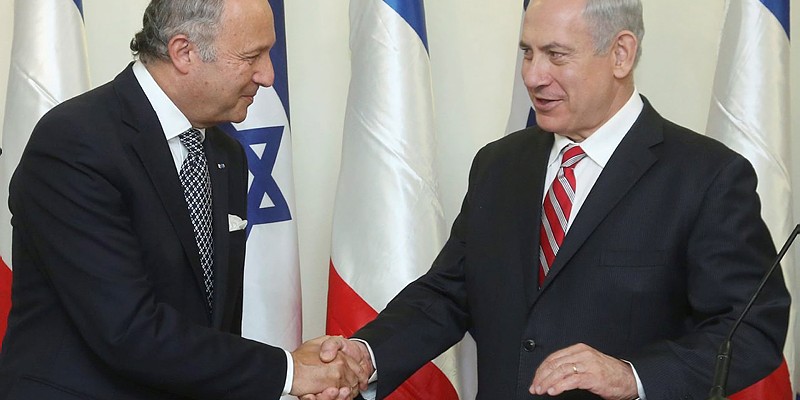Notwithstanding the obstacles, including profound security concerns, that were raised in Geneva on the weekend during the first round of negotiations toward a nuclear-arms deal between Iran and the six global powers, both sides have expressed optimism that a deal could be made.
The talks are aimed at reaching an agreement that would result in the relieving of sanctions on Iran by the P5+1 (the United States, Russia, China, Britain France and Germany) in exchange for a partial freezing of the Iranian nuclear program. The weekend discussions have produced “significant progress,” US Secretary of State John Kerry said. “There is no question in my mind that we are closer now as we leave Geneva than we were when we came, and that with good work and good faith over the course of the next weeks we can in fact secure our goal.”
French Foreign Minister Laurent Fabius, however, expressed opposition on Saturday to what he termed a “sucker’s deal.” What mainly concerns France – and Israel – are Iran’s Arak heavy-water nuclear reactor and its 20-percent enriched uranium stock, and it was France’s resistance that halted the progress of the negotiations. Although Iran claims that the production of nuclear isotopes is for medical and agricultural research, such a reactor could produce sufficient quantities of plutonium for nuclear bombs.
Following the announcement on Saturday of a setback in the talks, Iran declared that it has its own “red lines,” and what it insists upon is its “rights to enrichment” of uranium.
“We have said to the negotiating sides that we will not answer to any threat, sanction, humiliation or discrimination, Iranian President Mahmoud Rouhani asserted at the National Assembly on Sunday, the Iranian Student News Agency reported. “The Islamic Republic has not and will not bow its head to threats from any authority.”
On Friday, Israeli Prime Minister Benjamin Netanyahu had urged Secretary of State John Kerry to reconsider the US decision to move forward with negotiations as long as Iran refuses to halt its nuclear ambitions.
US President Barack Obama, in a telephone call on Friday to Netanyahu after Kerry’s departure, reiterated his “strong commitment to preventing Iran from obtaining a nuclear weapon,” although no further details on the discussion were reported.
On Sunday, European Union foreign policy chief Catherine Ashton, in a joint press conference with Iranian Foreign Minister Mohammad Javad Zarif, stated that “concrete progress on Iran’s nuclear program has been made, but some issues remain. The six powers and Iran will resume talks on November 20.”
Zarif said he was still “hopeful” that an agreement will be reached in the next round of negotiations. Differences were expected, he explained, but the talks were “very good, [and] something we can build on.”
On Monday, at the weekly cabinet meeting, Netanyahu said:
“Over the weekend I spoke with US President Barack Obama, Russian President Vladimir Putin, French President Francois Hollande, German Chancellor Angela Merkel and British Prime Minister David Cameron. I told them that according to the information reaching Israel, the apparent deal is bad and dangerous. It is dangerous not just for us; it is also dangerous for them. It is dangerous for world peace because it lowers the pressure of sanctions that took years to build while on the other hand, Iran, in practice, retains its nuclear enrichment capability as well as the ability to advance along the plutonium track.”
Netanyahu continued, “I emphasize that the proffered deal does not include the dismantling of even one centrifuge. I asked all the leaders – why the haste? I proposed that they wait, that they consider the matter seriously. This is an historic process and these are historic decisions. I asked to wait. It is good that this is what was decided in the end but I am not deluding myself – there is a strong desire to reach an agreement, I hope not an agreement at any price, and if there is to be an agreement then it needs to be a good agreement and not a bad agreement. I hope that they will reach a good agreement and we will do our utmost to convince the major powers and the leaders to avoid a bad agreement.”
If you live in the United States, United with Israel urges you to write to your representatives in Congress, asking them to oppose the continued negotiations with Iran while it holds onto its nuclear program!
Find your representative here –>
http://www.house.gov/representatives/find/
If you are not an American citizen, please demand that your leaders take a stand against a nuclear Iran and oppose this dangerous deal.
Also, everyone can help Israel by signing the petition at: http://www.stopiran.org
Author: Atara Beck, Staff Writer for United with Israel
Date: Nov. 10, 2013


